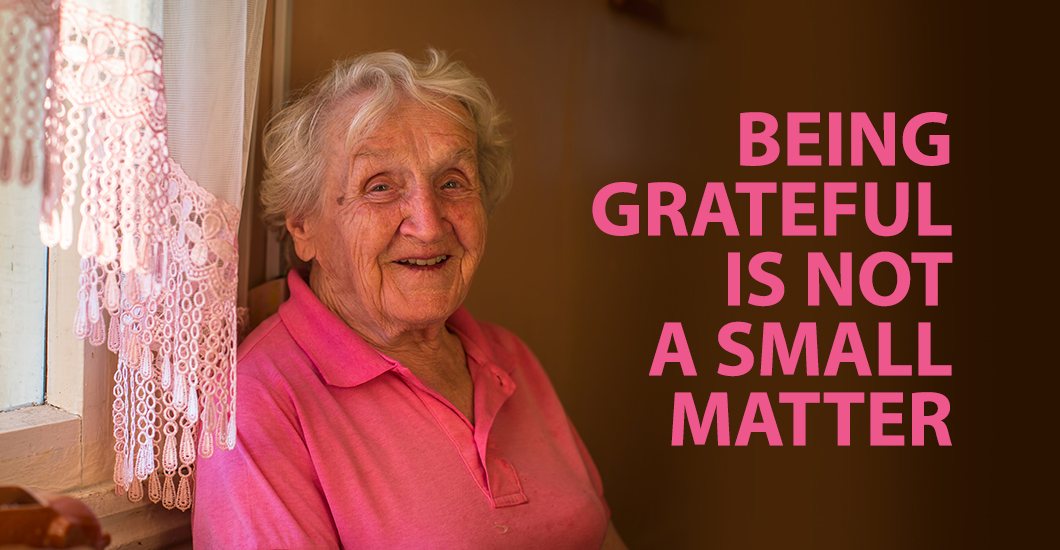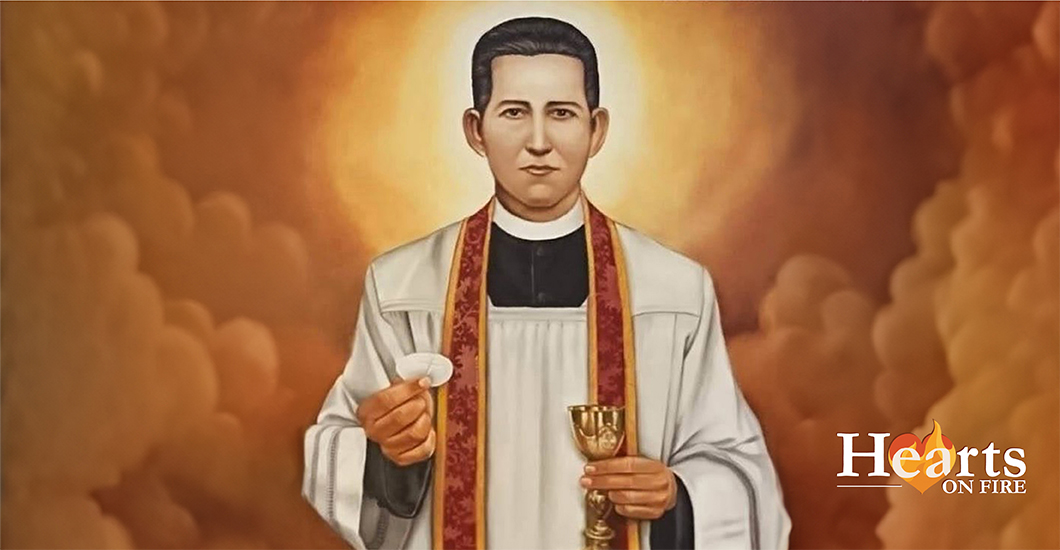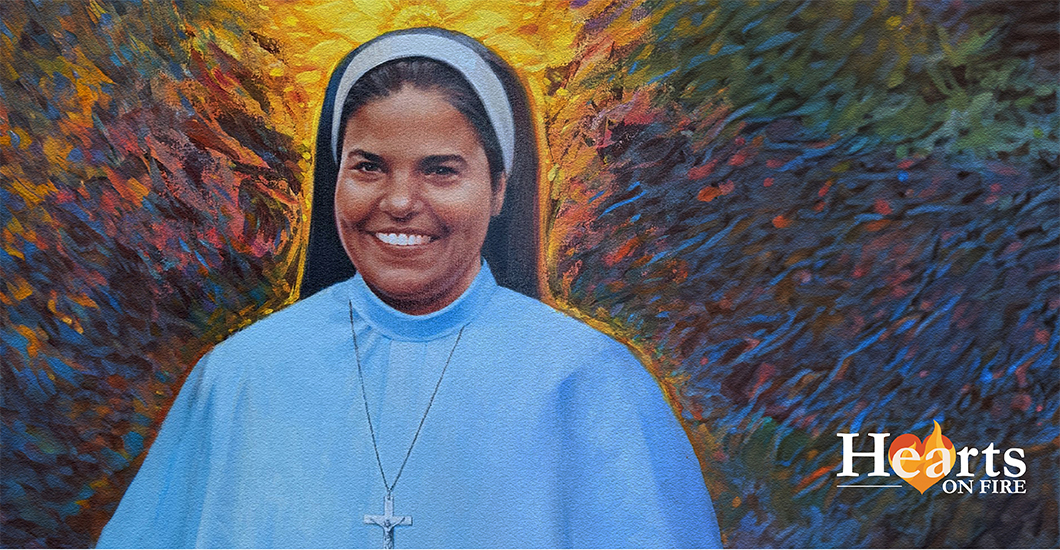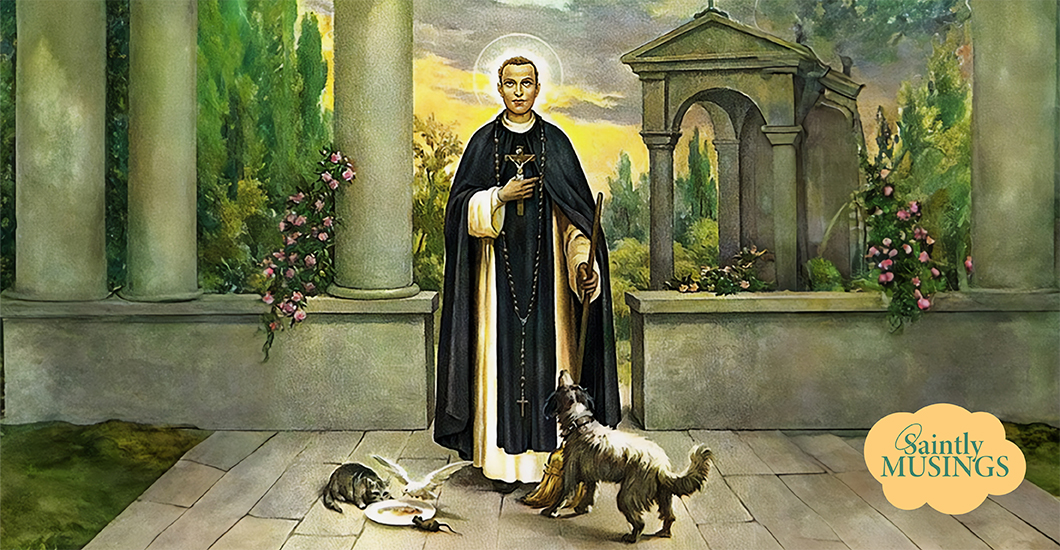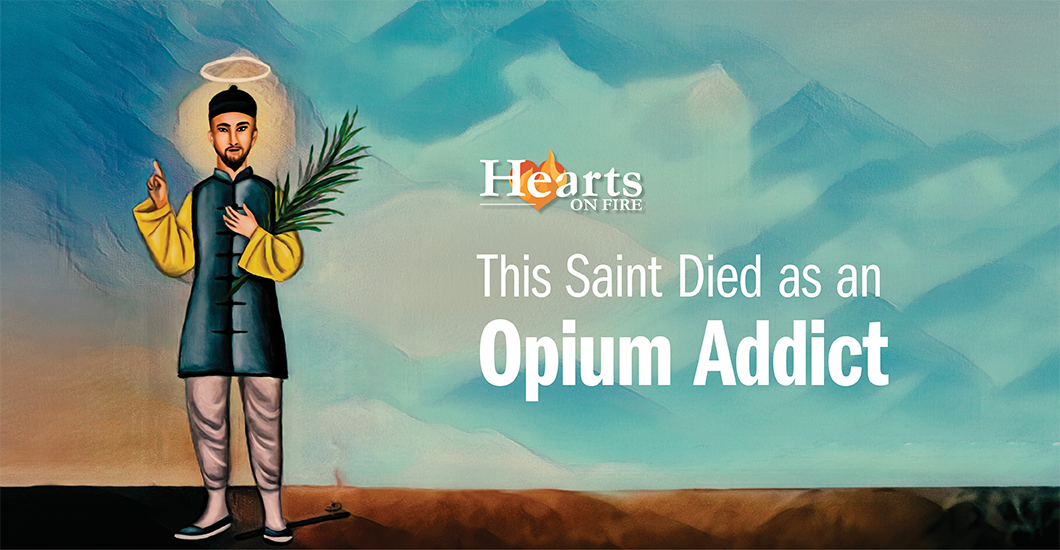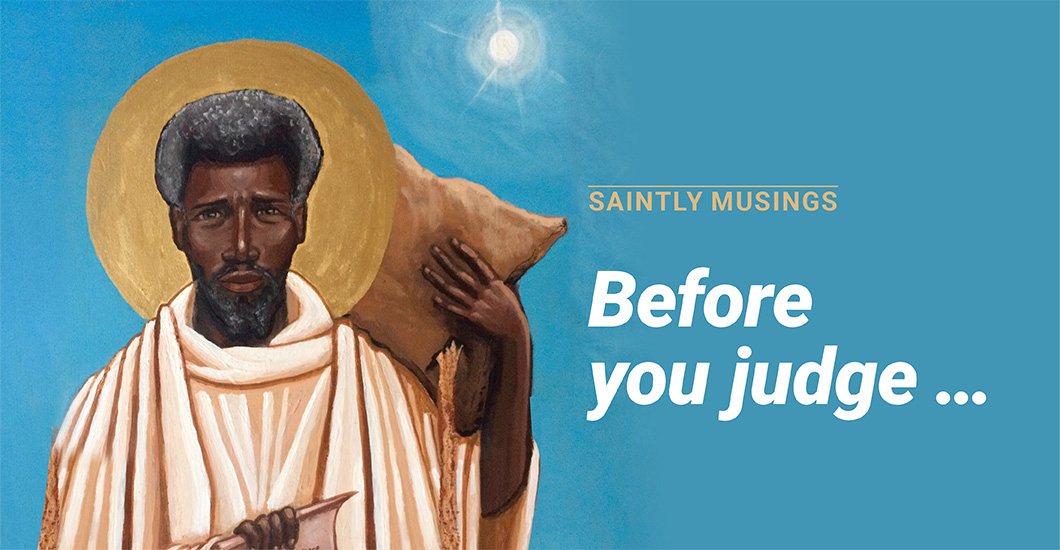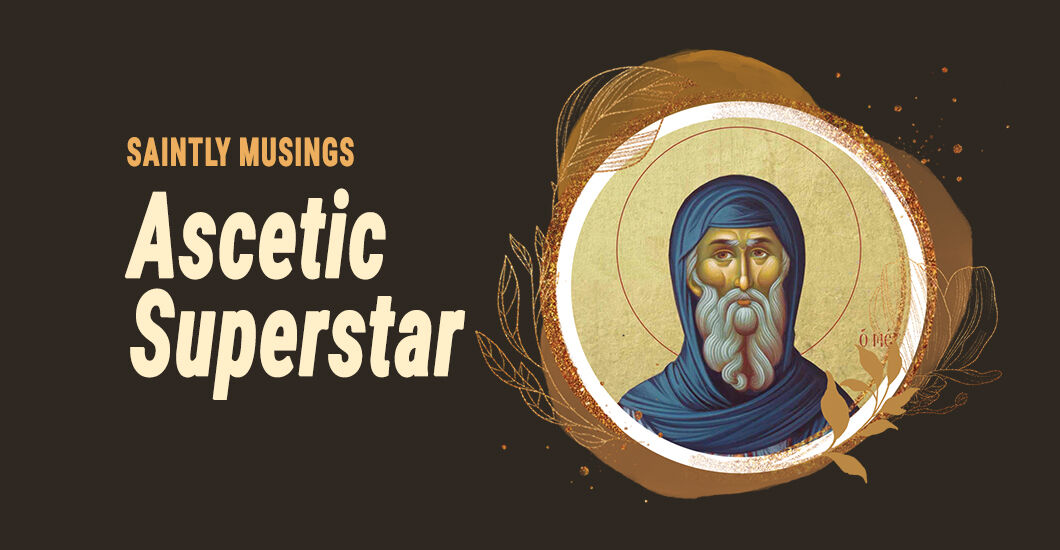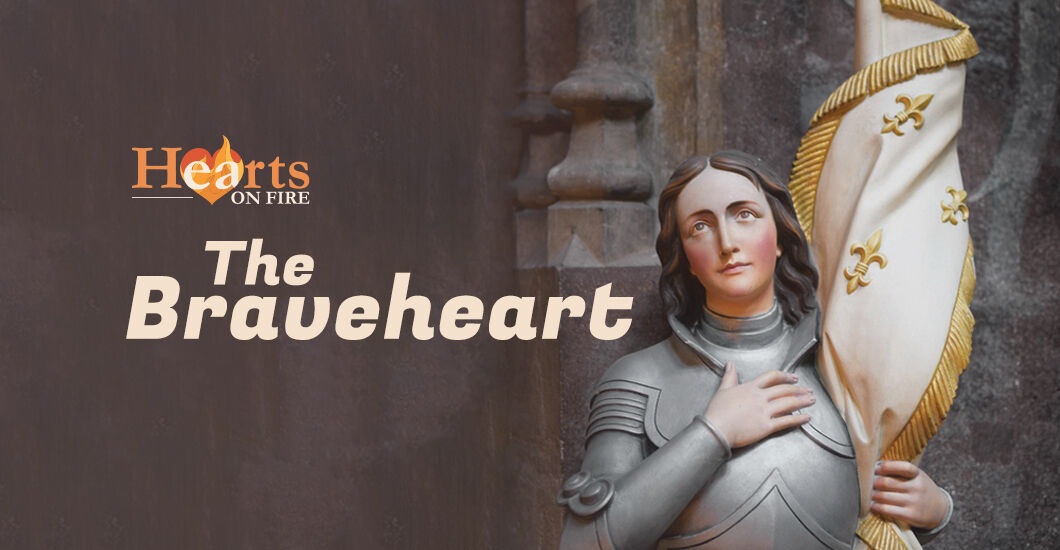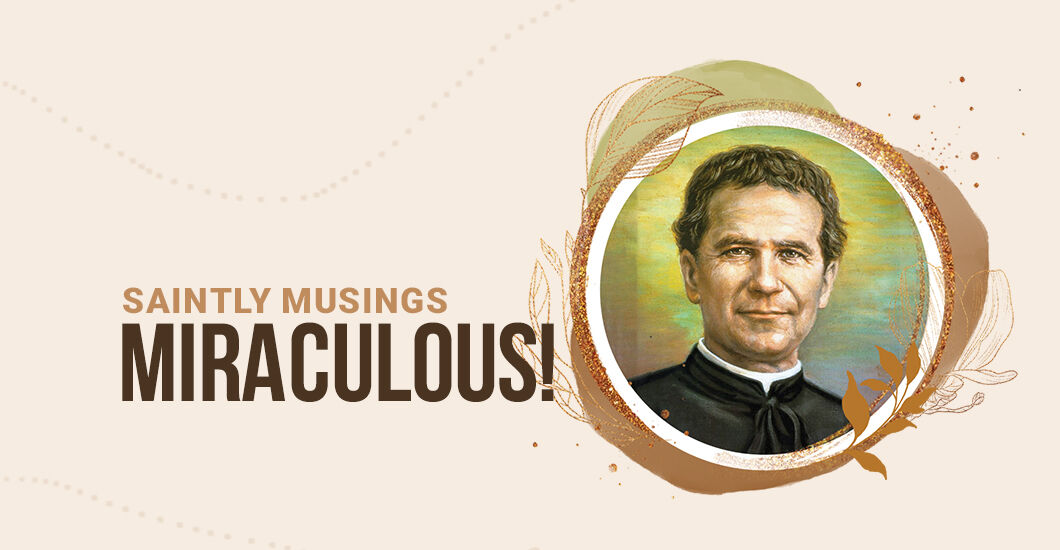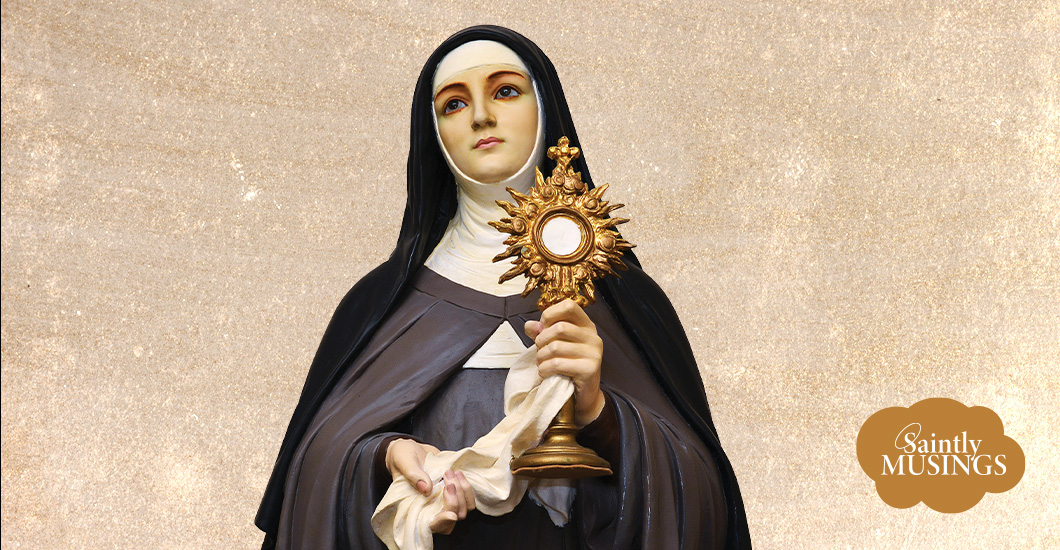Being Grateful is not a Small Matter
Very early one morning, I was in pain. I collected Marija my translator in Mostar and one look told her that I had been awake all night and was still suffering from the aftermath of a high-speed rear ending the previous year. I felt burdened and cranky about the work overload scheduled for the day—the meeting with the obstinate builder who loved to take shortcuts with the construction work and, therefore, every detail had to be painstakingly scrutinized.
His loud voice overshadowed Marija’s in the swanky office and I struggled to hear her translation as to why he was looking for another 25,000 pounds for the one million current projects. Bosnia-Herzegovina had brought out a toughness in me which I thought I was incapable of.
As I sat at the table I was furiously defending Rebuild for Bosnia donors’ money, more stubborn than the builder, telling him the amount was not specified in
the contract and he had to take responsibility for his mistake. He continued to argue and pushed me as far as he could. I refused to give in, telling him the cost of his mistake was one house less for the homeless and that he could consider his mistake a contribution toward helping his fellow displaced Catholic people.
Cool-off Time
It was an exhausting start to the day and the heated exchange drained me of resources even further. I took a walk around the block, drew a deep breath and focused my thoughts on our next appointment in city hall. It was almost mid-day and after the morning in the city, I was ready to leave and have lunch somewhere more relaxing.
“Why don’t we call to see Mara?” Marija asked. She knew if anything were to cheer me up that day it would be a visit to our dear old friend, Mara, whose eyes would light upon seeing her unannounced visitors at the door.
We stopped at the local store and picked up some ham, cheese, eggs and cakes. Mara had been dispossessed of her two-story home, set in the idyllic alpine mountains on the outskirts of Konijc, cleansed of 10,000 of its 11,500 Catholic population during the 1992–1995 conflict. She was now living in her new home, once that Rebuild for Bosnia had built for her, and was happy in her peaceful surroundings.
The door opened and she saw Marija and me standing there. A radiant light filled her soft brown eyes as she raised them to heaven, praising God for our visit. She sat down beside me, pushed her weary body as close as she could and slipped her arm through mine. “I wasn’t expecting you,” she said. “I told you I’d be back on my next visit,” I replied.
Magnificient Gift
A month earlier I had paid her a visit and tried to see her as often as possible since she had been diagnosed with bowel cancer and had a colostomy. That day I sensed a bad odour coming from her colostomy bag. After a little gentle probing, she explained that the hard plastic rim on the bag, which sits next to her skin, irritated her so much that she could not use the bag and she was substituting it with pieces of cloth. I was shocked to discover her predicament and promised I would be back with a supply of bags.
Soon after, I called my friend Delores and she donated 200 of the finest and best colostomy bags on the market. I brought them with me on the next visit. “I’ve got something for you, Mara,” I said, reaching for a large bag at my side. Opening a box, I took one bag out and placed it in the palm of her hand. “What do you think of that?” I asked. She ran her hand over the velvety exterior finish and replied “Luxurious.” Resting both hands in her lap, she raised her head and turned her gaze to the Lord. Her lips moved in prayer thanking God for the magnificent gift. I looked at Marija and could see tears in her eyes. It was a deeply humbling moment. “I’m sorry, Lord, for all my grumblings today. Here is a beautiful soul who thanks you for colostomy bags while most other people would be angry with you because of their sickness and would be unable to see the gift.”
An Eye Opener
I apologised to God for my lack of gratitude and recognized the times I had failed to see the gift because an expectation of more had blinded me. An excess of material commodities in life and a surplus lifestyle had blurred my vision and muted the words “Thank you, Jesus, for all you have provided for me in this life.”
I felt ashamed when I contemplated how miserable I had been in my thanksgiving to Jesus. I had hurt him so many times by my lack of heartfelt gratitude. “Do you have a right to more?” I asked myself. I realized I had entertained the spirit of disappointment far too many times and that changes to my thinking were needed. I made a promise to the Lord that no matter what I prayed for, from then on, and regardless of what I received, I would never be disappointed.
I thank God for that precious moment with Mara when my eyes were opened to my gloom toward the Lord. My life was filled with an abundance of good things and I lacked nothing.
Thank you Lord
Working with the poor, displaced and disabled people of Bosnia-Herzegovina greatly enriched my spiritual life and brought me closer to allowing God my father to provide for my needs. In moments of pain, sorrow, anxiety, humiliation and the many negative emotions I experience at times, I make a point of praising Jesus. When I wake at night and I feel anxious, I pray the rosary and praise and thank the Lord. It is a peaceful way to live, bringing joy and contentment, and I enjoy the beautiful peace in my heart to which Our Lady constantly refers.
May the Lord bless you as you read this article and allow you to see the greatness of God through His goodness to you. May your heart sing a song of thanksgiving all day long.
My dear Jesus, I am truly sorry for hurting you with my ungratefulness for the countless graces and blessings you have bestowed throughout my life. I deeply regret the times I failed to express my heartfelt gratitude. You are my Lord and I love you. In you and through you, I have my life. Praise be Jesus.
Patricia Keane is the author of the critically acclaimed book “Journey of Ten Thousand Smiles” and is an inspirational speaker and witness to her inner healing in Medjugorje. She hosts a weekly programme, Health and Faith Matters on Radio Maria and blogs at www.journeyoftenthousandsmiles.org. Patricia received two International Awards for her humanitarian work with the ethnically displaced families of Bosnia-Herzegovina through her tireless work with the charity Rebuild for Bosnia.
Related Articles
The Mexican Revolution which began in the early 1920s, led to the persecution of the Catholic community in that country. Pedro de Jesus Maldonado-Lucero was a seminarian at that time. Once he became a priest, despite the risk, he stood with his people. He tended to his flock during a terrible epidemic, founded new apostolic groups, reestablished associations, and ignited Eucharistic piety among his parishioners. Upon discovering his pastoral activities, the government deported him, but he managed to return and continue serving his flock, in hiding. One day, after hearing the confessions of the faithful, a gang of armed men busted his hiding place. Father Maldonado managed to grab a reliquary with Consecrated Hosts as they forced him out. The men forced him to walk barefoot throughout the town, as a crowd of the faithful followed him. The city mayor grabbed Father Maldonado's hair and dragged him toward the city hall. He was knocked to the ground, resulting in a skull fracture that popped out his left eye. He had managed to keep his grip on the pyx until this time, but now it fell out of his hands. One of the thugs took some Holy Hosts, and as he forcefully stuffed the hosts inside the priest’s mouth, he shouted: “Eat this and see if He can save you now.” Little did the soldier know that just the night before, during the Holy Hour, Father Maldonado had prayed that he would happily give his life for an end to the persecution ‘if only he would be allowed to take Communion before his death.’ The thugs left him for dead in a pool of his own blood. Some local women found him still breathing and rushed him to a nearby hospital. Father Pedro Maldonado was born into eternal life the next day, on the 19th anniversary of his priestly ordination. Pope John Paul II canonized this Mexican priest in 2000.
By: Shalom Tidings
MoreRani Maria Vattalil was born on 29 January 1954 to Eleeswa and Paily Vattalil in a small village called Pulluvazhy, in Kerala, India. From a young age, she was brought up in the Christian faith, having love for the poor. She attended daily Mass and led family prayers. During the final year of high school, Rani felt the Lord calling her to consecrated life and entered the Franciscan Clarist Congregation in 1972. It was Rani Maria’s ardent desire to do missionary work in North India and serve the poor, even if it cost her life. She was sent to Madhya Pradesh (a central Indian state) and served several mission areas there. Sister Rani Maria was given the responsibility of coordinating the social apostolate of the local diocese. She organized various educational programs for children and young people and worked relentlessly to empower the indigenous people. She understood how the poor, illiterate farmers were exploited and taken advantage of by their landlords. So, she educated them on their rights, helped them fight for justice, and spoke for those who were unjustly imprisoned. All this infuriated the upperclass landlords, who threatened her with dire consequences if she continued supporting the cause of the poor. But Rani Maria feared nothing and did not back down from her mission to 'love her neighbor.' A devious plan was then hatched by those who hated her. On 25th February 1995, while traveling by bus, she was mercilessly stabbed 54 times by Samundhar Singh—a man hired by the landlords. She breathed her last, repeating the Holy name of Jesus. Rani Maria worked her entire life to fight for the dignity and rights of her fellow men and bore witness to the Gospel through her social activities. Sister Rani Maria’s family, following the valiant example of their daughter, forgave her murderer wholeheartedly, even inviting him to their home! This act of mercy touched him deeply; he repented of his heinous crime and became a changed man. Sister Rani Maria was beatified by Pope Francis on 4th November 2017.
By: Shalom Tidings
MoreMartin de Porres was born in 16th-century Peru; he grew up facing the stigmas of both his mixed race and illegitimacy. After a barber-medical apprenticeship in his young years, he joined the Dominicans as a ‘lay helper’ and continued his barber work in the monastery. One day, Brother Francis Velasco Carabantes approached Martin, desiring to talk to this man whom people were already starting to believe was saintly. Martin was busy with his barber work; he absent-mindedly grabbed this novice and placed him in the barber’s chair. Brother Francis had no inclination to have his head shaved; he disliked the hairstyle that the Dominicans used. Before he could resist, Martin had finished his job, and Brother Francis was angry beyond expression. He started to shout, calling Martin all sorts of curse words. Martin was lost in prayer, and by the time he noticed that this novice was shouting, one of the rectors had seen the commotion and was scolding Brother Francis, who was severely punished and sent away. Martin, once he came to realize what had happened, went to the rector with all possible excuses. He begged forgiveness for this person who had verbally abused him, trying even to explain away the curse words used. Finally, he told the rector: “Everyone knows what a sinner I am.” The rector, who was aware of Martin’s saintly life, gave in to his request and forgave Brother Francis. Not satisfied with this, Brother Martin even sent fresh fruit, which was a rare delicacy in the monastery, to Brother Francis. How many times have we rejoiced in the ‘just’ punishments that our transgressors received? Let us pray to Saint Martin for the virtue of humility, to forgive and show the other cheek, as Jesus taught us to do.
By: Shalom Tidings
MoreOn a scorching afternoon on the streets of Calcutta, I met a boy… Prayer is an undeniable, central, and key part of every Christian’s life. However, Jesus emphasized two more things which clearly went hand in hand with prayer—fasting and almsgiving (Matthew 6:1-21). During the seasons of Lent and Advent, we are specifically called to commit more time and effort to all three ascetic practices. ‘More’ is the important word. Whatever season we are in, radical self-denial and giving are a continuous call for each baptized believer. Around eight years ago, God literally made me stop and think about it. Unexpected Meeting In 2015, I had the great privilege and blessing of fulfilling a lifelong dream to be with and serve some of the most in-need brothers and sisters worldwide in Calcutta, India, where the poor are described not only as poor but the ‘poorest of the poor.’ From the moment I landed, it was as though electricity was running through my veins. I felt such immense gratitude and love in my heart to be given this amazing opportunity to serve God with Saint Mother Teresa’s religious order, the Missionaries of Charity. The days were long but absolutely action-packed and grace-filled. Whilst I was there, I did not intend to waste a moment. After a 5 AM start to each day with an hour of prayer, followed by Holy Mass and breakfast, we set off to serve at a home for the sick, destitute, and dying adults. During the break at lunchtime, after a light meal, many of the religious brothers I was staying with took a siesta to recharge their batteries, to be ready to go again in the afternoon and on into the evening. One day, instead of having a rest in the house, I decided to go for a walk to find a local internet café, to contact my family by email. As I turned one of the corners, I encountered a young boy aged around seven or eight years old. His face expressed a mixture of frustration, anger, sadness, hurt, and tiredness. Life had already seemed to have begun to take its toll on him. He was carrying over his shoulder the biggest transparent, heavy-duty plastic bag that I had seen in my life. It contained plastic bottles and other plastic items, and it was full. My heart broke within me as we stood silently examining one another. My thoughts then went to what I could give this young boy. My heart sank, as I reached for my pocket, realizing that I only had a small amount of change with me to use for the internet. It added up to less than one pound in English money. As I gave it to him, looking him in the eye, his whole being seemed to change. He was so lifted and grateful, as his beautiful smile lit up his beautiful face. We shook hands, and he walked on. As I remained standing in that back street of Calcutta, I stood in awe as I knew that the Almighty God had just personally taught me such a powerful life-changing lesson through this encounter. Reaping Blessings I felt God had beautifully taught me in that moment that it is not the actual gift that is important but the disposition, intention, and love from the heart with which a gift is given. Saint Mother Teresa beautifully summed this up saying, “We cannot all do great things, but we can do small things with great love.” Indeed, Saint Paul said, if we give away all we have “but have not love,” we gain nothing (1 Corinthians 13:3). Jesus describes the beauty of giving, that when we “give… it will be given to you; good measure, pressed down, shaken together, running over, will be put into your lap. For the measure you give will be the measure you get back.” (Luke 6:38). Saint Paul also reminds us that “Whatever a man sows, that he will also reap” (Gal 6:7). We do not give in order to receive, but God in His infinite wisdom and goodness blesses us personally in this life and also in the next when we step out in love (John 4:34-38). As Jesus taught us, “it is more blessed to give than to receive” (Acts 20:35).
By: Sean Booth
MoreThe Chinese Boxer Rebellion in the 1900s killed nearly 32,000 Chinese Christians and 200 Western Missionaries. Among these devoted Christians who gave their life for their faith, Saint Mark Ji Tianxiang stands out because, at the time of his death, he was an opium addict who had not received the Sacraments for 30 long years. Ji was raised in a devout Christian family, and he was a respected and charitable doctor in his community. Fate be blamed, the opium he took to abate a disturbing stomach ailment took hold over him, and he was addicted to it in no time. Though he went to frequent Confession, Ji found himself in the grips of a powerful addiction that refused to succumb to any means of resistance. His parish priest and confessor eventually told him that he could not continue to repeat the same sin in Confession anymore. Confession requires a conscious resolve to repent and sin no more, and this repeated sin, in the 19th century, was not understood as an illness. He was henceforth restricted from receiving the Sacraments, but he continued visiting the Church and stayed true to the Lord’s ways. He remained sincere to his faith because He believed in a Merciful Father. Many assumed that he would be the first to deny the Lord when faced with the threat of persecution. But along with his son, grandchildren, and daughters-in-law, he persevered till the very end. In fact, Ji provided spiritual consolation to his fellow Christians as they were imprisoned and awaiting execution. Stories record that as they were dragged to prison, his grandson, shaking with fear, asked him, “Grandpa, where are we going?” He calmly and jubilantly answered: “We’re going home.” He went to his death, singing the Litany of the Blessed Virgin Mary. Pope John Paul II canonized him in the year 2000.
By: Shalom Tidings
MoreEver heard of a robber who turned into a Saint? Moses the Black was a leader of a band of thieves who attacked, robbed, and murdered travelers in the Egyptian desert. The very mention of his name spread terror in people’s hearts. On one occasion, Moses had to hide in a monastery and was so amazed at the way he was treated by the Monks that he converted and became a monk! But the story doesn’t end there. Once, four of the robbers of his former band descended upon the cell of Moses. He had lost none of his great physical strength, so he tied them all up. Throwing them over his shoulder, he brought them to the monastery, where he asked the Elders what to do with them. The Elders ordered that they be set free. The robbers, learning that they had chanced upon their former ringleader and that he had dealt kindly with them, followed his example: they repented and became monks. Later, when the rest of the band of robbers heard about the repentance of Moses, they also gave up their thievery and became fervent monks. After many years of monastic struggles, Moses was ordained deacon. For another fifteen years, he continued his monastic labors. About 75 disciples gathered around the saintly Elder, who had been granted the gifts of wisdom, foresight, and power over demons by the Lord. Once, a certain brother committed an offense in Scete, the camp of the monks. When a congregation was assembled to decide on this matter, they sent for Abba Moses, but he refused to come. Then they sent the priest of the church to him, imploring, “Come, for all the people are expecting you,” and finally, he responded to their pleas. Taking a basket with a hole in it, he filled it with sand and carried it upon his shoulders. Those who went out to meet him asked, “What does this mean, O Father?” And he replied, “The sands are my sins, which are running down behind me, and I cannot see them. Yet, I have come here today to judge shortcomings that are not mine.” When they heard this, they set that brother free and said nothing further to him.
By: Shalom Tidings
MoreAt the age of 20, Anthony lost his parents and was left with a large inheritance and the responsibility of caring for his sister. About the same time, Anthony happened to hear a reading from the Gospel of Matthew, where Jesus tells a rich young man, "If you want to be perfect, go and sell everything you have and give the money to the poor." Anthony believed he was that rich young man. Shortly after, he gave away most of his property, sold almost everything else, and kept only what he needed to care for himself and his sister. But that’s not exactly what the Lord had commanded! Not long afterward, Anthony was at Mass once again and heard the Gospel passage, “Do not worry about tomorrow; tomorrow will take care of itself” (Matthew 6:34). Again, he knew Jesus was speaking directly to him, so he gave away even the little he had saved, entrusted his sister to the care of some holy women, and entered the desert to live a life of poverty, solitude, prayer, and mortification. In that harsh desert landscape, the devil attacked him in countless ways saying “Think about all the good you could have done with that money you gave away!” Firm in prayer and mortification, Anthony fought off the devil and his manifestations. Many were attracted to his wisdom, and these he encouraged to seek self-denial and the hermetic life. No wonder after his death he became Saint Anthony the Great or Saint Anthony of the Desert, the father of Christian Monasticism. Once a brother renounced the world and gave his goods to the poor, but he kept back a little for his personal expenses. He went to see Abba Antony. When he told him this, the old man said to him, "If you want to be a monk, go into the village, buy some meat, cover your naked body with it and come here like that." The brother did so, and the dogs and birds tore at his flesh. When he came back the old man asked him whether he had followed his advice. He showed him his wounded body, and Saint Antony said, "Those who renounce the world but want to keep something for themselves are torn in this way by the demons who make war on them."
By: Shalom Tidings
MoreFew Saints of the Catholic Church have captured the popular imagination like Joan of Arc. Her story is depicted in paintings, sculptures, and numerous films. Born into a peasant family in 1412, Joan grew up illiterate, but acquired a profound love for the Church and a deep faith in God from her mother. Because she loved prayer and the sacraments, her neighbors said, “She was so good that all the village loved her.” She cared for the sick and homeless, often even giving them her own bed. By the age of thirteen, Joan began to hear the voices of Michael the Archangel, Saint Margaret of Antioch, and Saint Catherine of Alexandria. They told her she was to liberate France and ensure the French heir to the throne was installed as France’s rightful king. She won his trust by telling him details of his past only someone with divine knowledge could know. At the time, France was dominated and ruled by England. Convinced that her “voices” came from God, Joan heroically and faithfully obeyed their instruction, despite obstacles and suffering. Prayer and contemplation remained primary in her life even as she led battles, during which she never raised the sword against an enemy Though two years earlier a commission had “declared her to be of irreproachable life, a good Christian, possessed of the virtues of humility, honesty and simplicity”, Joan was accused of witchcraft and heresy after the English captured her, receiving no support from the very King she put on the throne. At her trial, Joan manifested her deep faith and wisdom, and despite being wrongly condemned, she never lost her faith in God or the Church. When she was burned at the stake, she proclaimed the name of Jesus while holding a crucifix to her heart, causing an observer to say, “We have burned a saint.” Her death increased her fame and popularity. Twenty years later, a new trial declared her innocent of all her alleged crimes. After her reputation grew over the centuries to epic proportions, Joan was beatified in 1910 by Pope Pius X and canonized eleven years later by Pope Benedict XV. She is now the patron Saint of France and one of the Church’s most beloved Saints. Joan’s obedience to God ensured France kept the Catholic faith during the Protestant Reformation while England abandoned it. France remained a solid center of Catholicism from which it would spread to northern Europe.
By: Shalom Tidings
MoreThe river had swelled so high that water covered everything and all sense of where the road or footpath might be was purely a guess. With water everywhere, it seemed foolish to advance, especially in a carriage, for if anyone strayed ever so little off the road, they would perish without a doubt. As her companions panicked, Sister Teresa encouraged them, “As we are engaged in God’s work, how could we die in a better cause?” She then led the way on foot to the convent through the fierce storm. Suddenly she slipped down an embankment and fell squarely into the mud. Instead of complaining or cursing, the irrepressible nun, looked to the sky and quipped, “If this is how you treat your friends, no wonder you don’t have many!” The sixteenth-century Saint and Doctor of the Church, Teresa of Avila, didn’t take herself or this world too seriously and brushed off the little hardships of life with a sense of humor. Her ability to humbly recognize her own faults and need for grace was also tinged with her refreshing humor. In her autobiography, Teresa writes, “Having virtuous and God-fearing parents would have been enough for me to be good if I were not so wicked.” Saint Teresa was also mindful of false piety and once said, “From silly devotions and sour-faced saints, good Lord, deliver us!” A healthy and good sense of humor will keep our head straight and enable us to see the world’s true beauty. Did God say that we need to be “sour-faced” to be holy? So, if you want to become a saint, lighten up, share the joy of the Lord and laugh with your friends like Jesus did.
By: Shalom Tidings
MoreMaria Stardero, a 12-year-old girl, was led by her aunt into the church where dozens of boys were standing about or kneeling in prayer as they waited for Don Bosco to arrive for confessions. As she made her way to a pew, some of the boys noticed that the young girl’s eyes had no corneas and resembled white marbles. When Don Bosco arrived, he asked the girl about her condition. She had not been born blind, she told him, but because of eye disease she had completely lost her sight two years earlier. When he inquired about medical treatment, her aunt began to sob. They had tried everything, but doctors had only one thing to say: “It is incurable!” “Can you tell whether things are big or small?” Don Bosco asked the child. “I can’t see anything.” He led her to a window to see if she could perceive light, but she couldn’t. “Would you like to see?” Don Bosco asked. “Oh, yes! It’s the only thing I want,” said the girl, breaking down in tears. “Will you use your eyes for the good of your soul and not to offend God?” “I promise I will, with all my heart!” “Good,” said Don Bosco. “You will regain your sight.” After recourse to Mary, Help of Christians, Don Bosco recited the Hail Mary and blessed the girl. Then holding a medal of Mary Help of Christians before the girl’s eyes he asked, “For the glory of God and the Blessed Virgin, tell me what I’m holding in my hand.” “She can’t . . .” the elderly aunt began, but Don Bosco paid no heed. After a few seconds, the child shouted, “I see!” Immediately she described the medal in great detail. But when she stretched out her hand to receive it, it rolled into a dark corner. The aunt moved to retrieve it, but Don Bosco motioned her back. “Let her find it to see if the Blessed Virgin has thoroughly restored her sight,” he insisted. Immediately, the girl walked to the dark corner and bent down to retrieve the tiny object. As the many witnesses looked on, awed and profoundly moved, Maria, thanked Don Bosco profusely and with sobs of great joy. Entrust everything to Jesus in the Blessed Sacrament and to Mary, Help of Christians and you will see what miracles are! Saint John Bosco
By: Shalom Tidings
MoreLatest Articles
Tom Holland’s magnificent book Dominion develops in detail what amounts to a very simple proposition—namely, that Christianity is responsible for many of the central values that we take for granted and that we assume to be universal. In point of fact, he avers, our insistence upon the dignity of the individual, fundamental human rights, the principle of equality, and perhaps above all that the poor, the marginalized, and the victimized ought to be specially cherished, flows from basic Christian convictions. What prompted Holland to investigate this claim initially was his extensive work in the history of ancient Rome. The longer and more deeply he looked at Roman society, the stranger it seemed, the less like our own time. And the more he studied the great heroes of Rome, the more alien and morally problematic they appeared. To give just one example among many, he urges us to consider perhaps the most impressive of ancient Roman personalities, Julius Caesar. Eager to enhance his political reputation, Caesar embarked on a military campaign in Gaul (present-day France). His remarkable success in subduing this land and making it a Roman province served to cover him in glory and became the subject of his book The Gallic Wars, which is read to this day. But what is rarely remarked upon is the staggering fact that in the course of this conquest, Caesar killed, by conservative estimate, one million people and enslaved another million or so more. Now, Caesar had a boatload of enemies in Rome who suspected him of lusting after kingly power. But what Holland finds fascinating is that none of his opponents were scandalized by his murderous rampage through Gaul. In fact, all of Rome praised him for it. So the question arises: Why would we today consider someone who killed and enslaved on such a massive scale a scoundrel while even the best and brightest in ancient Roman society considered Caesar a hero? The answer, in a word, is Christianity. What the early Christians brought to Roman culture was the belief in the one God who made every human being in His image and likeness and who thereby endowed them with rights, freedom, and dignity. Moreover, the Christians taught, the Creator God became human and went willingly to the very limits of suffering and degradation, in Saint Paul’s words, “accepting even death, death on a cross.” They proclaimed a Savior who was a victim of Roman tyranny and whom God raised from the dead. And by this proclamation, they brought all the tyrannized, all of the victimized, all of the weak and forgotten from the margins to the center. These beliefs were, of course, initially regarded as absurd, and the early Christians were brutally persecuted for them. But over time, and through the witness and practice of courageous people, these beliefs soaked into the fabric of Western society. So deeply did they penetrate our consciousness that we came, as Holland has argued, to take them for granted and to mistake them for general humanistic values. Now, why is all this important to us today? We live in a time when the Christian faith is rather regularly denigrated by those in the upper echelons of elite society, in the universities, and in the media. Moreover, armies of people, especially the young, are disaffiliating from the churches and ceasing to engage in religious ritual and practice. Harmless enough, you might think, or even to the advantage of a society reaching maturity through secularization? Think again. As Christian faith and praxis evanesce, the values that Christianity has inculcated in our culture evanesce as well. Cut flowers may bloom for a time once they’ve been ripped from the soil and placed in water, but they will fade soon enough. We delude ourselves if we think that the values instilled in us by Christianity will long survive the demise of Christianity itself. Signs of the emergence of a neo-paganism in fact abound. In many states in our country, as well as in Canada and many European countries, a regime of euthanasia holds sway. When elderly or sick people become inconvenient, they can and should be eliminated. And, of course, in most countries in the West, when a child in the womb is judged to be a problem, he or she can be aborted at any point in pregnancy, up to the moment of birth. In my home state of Minnesota, a proposal has been made to enshrine this ‘right’ to the murder of the unborn in the constitution. How like this is, by the way, to the ancient Roman practice of exposing unwanted newborns to the elements and the animals. And how fascinating, in light of Tom Holland’s analysis, that the early Christians got the attention of the environing Roman culture precisely by their willingness to rescue and take in these abandoned babies. So, what is the needful thing? Christians must raise their voices in protest against the culture of death. And they must do so by claiming and publicly proclaiming the values that come from their faith. For too long, believers have been cowed into silence by the insinuation that religion is a ‘private’ matter. Nonsense. Christian values have informed our society from the beginning and have provided the coherent moral framework that most of us still take for granted. Now is not the time for quietude. It is time for us to shout our convictions from the rooftops.
By: Bishop Robert Barron
MoreQ – Later this year, my brother is getting civilly married to another man. I am very close with my brother, but I know that marriage is between a man and a woman. Would I be allowed to attend his wedding? A—This question is becoming increasingly pressing, as so many of our family and friends live lifestyles that contradict God's revealed plan for our fulfillment. Such a quandary can cause great angst since we want to love our family and support them, even if we disagree with their choices. At the same time, we cannot betray what we know to be true, as we believe that God’s plan leads to authentic happiness. The Catechism of the Catholic Church (Paragraph 1868) deals with this when it speaks about ways in which we can cooperate in someone else’s sinful choice. We participate in someone else’s sin when we ‘praise or approve’ of the sinful action. In the case of someone making a lifestyle choice that goes against our Catholic Faith, it would be morally wrong for us to in any way congratulate or celebrate this choice, which ultimately harms their relationship with God and puts their salvation in jeopardy. So what would be the best course of action? I would recommend an honest conversation with your brother. Share your deep love for him, and how you desire this relationship to continue being close. At the same time, share with him how your faith and conscience teach you that you cannot approve of things that you know to be wrong. Do not attend the wedding, send a gift, or congratulate him, but be sure to let him know that you are still there for him. Emphasize that it is not out of ‘hate’ or ‘bigotry’ that you cannot attend the wedding, but out of a firm and unchanging belief that God created marriage as something sacred between a man and a woman. This may or may not cause strife and conflict in your family. But we must never forget that Jesus promised: “Not to bring peace, but the sword”. He said that we must follow Him above any other relationship, including that of family and friends. This is certainly one of His difficult teachings, but we remember that truth and love are never in opposition, and to truly love your brother, you must love him according to the truth that Christ reveals. Never forget, too, the power of prayer and fasting. Pray and fast before your conversation with your brother so that his heart may be open to your goodwill, and pray and fast after the conversation so that he may experience a deep conversion to Christ, Who alone fulfills the human heart. Do not be afraid to choose Christ over your family, and continue to love your family— in and through Christ— regardless of your brother’s reaction. Do not be afraid, but continue to love in truth.
By: Father Joseph Gill
MoreIn the year 1240, Emperor Frederick II of Sweden was at war with the Pope, and he sent his warriors to attack Italy. The cruel soldiers decided to break into the cloistered convent of San Damiano, which was located on the border of the town of Assisi. This was where Mother Clare and the nuns under her care resided. The poor nuns were terrified and immediately rushed to their Mother to share the news. Mother Clare was bedridden, but with the help of the sisters, she got up and calmly went to the chapel. Prostrating herself in front of the Eucharist, she tearfully implored God to protect the helpless sisters. Suddenly, she heard a voice from the tabernacle: “I will always protect you!” Filled with confidence and trust, she took the ciborium containing the Blessed Sacrament and went to face the invaders. As she raised it in front of them, the soldiers were thrown into confusion and utter fear. They instantly fled the convent, abandoning their evil schemes. To the nuns, their mother’s unwavering devotion to the Holy Eucharist was a great lesson. Saint Clare, in her great humility, instructed the sisters not to reveal the voice they heard from the Blessed Sacrament until after her death. Let us, inspired by Saint Clare, grow in our devotion to Jesus in the Eucharist and put our complete trust in Him.
By: Shalom Tidings
MoreWith every act, we are aiming an arrow. Do we end up saying “Uh oh! Can I have a do over?” every time? The conversation began the night before, as so many others do, innocently enough. It was on the short drive home that I recognized a sense of uneasiness. After reflecting on words I shared earlier with my friend, I wondered if what I was feeling was that familiar nudge from the Holy Spirit. Perhaps I had once again strayed outside the boundary lines that Psalm 16: 6-7 describes? “The boundary lines have fallen for me in pleasant places; I have a goodly heritage. I bless the Lord who gives me counsel; in the night also my heart instructs me.” Pulling into the driveway, I quickly dismissed the thought...After all, this woman approached me with problems she was encountering with a couple of other women, and I was trying to be empathetic and understanding in my response. Fighting my Dilemma The next morning, however, it was clear that the Psalmist’s experience was now mine: the Lord indeed “counsels me; even at night my heart instructs me.” Upon waking, something I’d learned some years ago about the power of our words immediately came to mind. Yes, everything I’d shared the night before was True. It was also Helpful, in the context of my relationship with this person. It was in the middle of the acronym, T.H.I.N.K. that it struck me. My response didn’t fit the definition of Inspiring! Sadly, it could hardly be considered Necessary either! Fortunately, my examination ended on a positive note, as my comments could be perceived as Kind, since I remembered listing the beautiful attributes I’d observed in each of these women while we were discussing my friend’s concerns. Just as most of us have a particular flavor of ice cream, or other favorite food we indulge in again and again, so too, we may have a particular sin that we find ourselves choosing to entertain over and over. (The story of a man confessing to the priest that he had been having impure thoughts comes to mind...The priest asks: “Did you entertain them?” The penitent replies: “No, but they sure entertained me!”) I recognized that I had given in to my particular ‘flavor’ of sin, which I frequently confessed, but found myself repeating nonetheless…But my Confession didn’t elicit a chuckle from me, as the man’s in the story might have! Pondering my dilemma, I wondered what questions might others in a similar position consider...What might that ‘favorite flavor of sin’ be for someone else? What might they, too, have confessed again and again to God, to a priest, or even to a friend they trust? Moments of Growing up The Greek translation of the word ‘sin’ in the Bible is the word ‘hamartano’, meaning a person shooting an arrow, but missing the bull’s eye. The one who missed the mark was said to have sinned. Despite my best intentions, I’d missed the mark! After talking it over with the Lord that morning, I texted my friend. Only after asking for her forgiveness, and then sharing an insight that came to me as I was typing, did the root of my ‘hamartano’ finally dawn on me. In my text, I wrote: “My enjoyment of using words and sharing stories and conversations with people overrode my desire to avoid using my tongue in ways that weren’t necessary or inspiring.” I ended the text inviting her to hold me accountable if I wandered outside those ‘boundary lines’ in the future. I soon received a text back: “No matter how long we’ve been walking with Jesus we continue to have our growth moments. You are forgiven! I agree our conversation went on longer than it should have, which put us in a dangerous territory. I’ll do my best to be more aware of those situations and also to hold you accountable, if needed, and ask that you do the same for me. Thank the Lord for His grace and mercy, and for showing us where we need to do better.” Appreciating both my friend’s gracious reply as well as her honesty, I was encouraged to ‘do better!’ I realized that since it’s clear there must be something in us that we are feeding by indulging in, or by entertaining our most common temptation, it’s imperative we get to the root of the resultant behavior. By asking the Holy Spirit to reveal this root to us, we receive insight as to why we miss the mark repeatedly in this area. What happened to us in our past that created a void we choose to fill through our particular flavor of sin? What need or desire are we feeding by this indulgence? Is there a wound festering from our brokenness that needs healing? What might be a healthier response we could consider that would not only avoid hurting others, but also, allow us to offer ourselves compassion and grace in our weakness? Knowing we are to ‘love our neighbor as ourselves,’ seeking to love others necessitates growing in loving ourselves, too, does it not? Sow, Cultivate & Prune Sometimes, we persist in the same behavior for years. Without someone having the courage to respond as my friend did, we continue in patterns that limit the Holy Spirit’s efforts to conform us more and more to the image of Christ. We may try to change, but unless we are motivated sufficiently, perhaps through asking another to be our accountability partner, we may give up and go back to our flavor of choice. Whether it’s rocky road ice cream, or my choice of unnecessary words, the Lord wants us to know how much more enjoyable our lives and the lives of others around us could be if we would allow His Spirit to lead us to other options. I knew I needed to find a way to replace this tendency that I so easily fell into. I asked my friend to help me to be accountable when she observed me beginning to go down that familiar path again. Since all our efforts to avoid sin are to lead to better emulating the character of Jesus, Galatians 5:22-23 came to mind. I could choose to satisfy my hunger with one of the fruits of the Spirit, rather than my particular flavor of sin. Bearing the fruit of love, joy, peace, patience, kindness, goodness, faithfulness, gentleness, and self-control are evidence of the Holy Spirit’s partnering with us in our efforts to be more like Christ. Practice may not make perfect, but it does make progress! By directing my intention toward practicing one of these qualities, I knew I would eventually see the fruit of righteousness. Each fruit begins with a seed being sown, then fertilized, cultivated, and pruned, until, eventually we see the right behavior. In the meantime, I will begin by fertilizing my mind with reminders like the proverb: "Words are like arrows; once shot they cannot be called back." Now that I know the root of my behavior, and have invited my friend to hold me accountable, I am making the choice to focus on exercising self-control, ending conversations with others when I sense they are ‘putting us in dangerous territory,’ as my friend so succinctly pointed out. Having seen and tasted that the Lord is good, I know that only He can truly satisfy the desires of my heart. Psalm 16:8 continues: “I keep the Lord always before me; because He is at my right hand, I shall not be moved.” I lift my arrow once again to aim for the target. With His grace, in time, my arrowhead will come closer to the mark. Committed to being His disciple, I will follow Jesus, who is The Way…Home. Surely goodness and mercy shall follow me all the days of my life, and I shall dwell in the house of the Lord my whole life long. (Psalm 23:6)
By: Karen Eberts
More